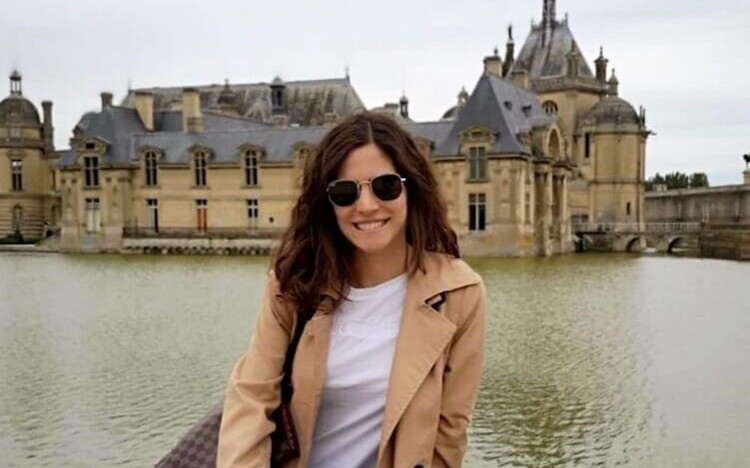These are all defined by a higher grade of delivery and standard than you might expect of something which is ‘economy’ or ‘budget’. Interestingly, the word ‘luxury’ derives from the Latin word luxus, meaning ‘excess’.
The market, however, is becoming increasingly concerned with sustainability and environmental impact, and this is beginning to have a profound impact on the conscience of global business schools.
People want to know where and how their products are being made—94% of consumers are more likely to show loyalty to a brand which embraces transparency. ‘Excess’ no longer seems to be a fitting word to apply to businesses.
“Luxury hasn’t changed but the client has,” professes Thibaut de La Rivière (pictured), director of Institut Supérieur de Marketing du Luxe, known as Sup de Luxe.
For Thibaut, keeping up with modern trends has been crucial to maintaining the school’s status as one of France’s leading centers for all things luxury.
Paris, the center of luxury
Together with the EDC Business School in Paris, French businessman and president of Cartier, Alain-Dominique Perrin, founded the school in 1990. Its intention was to train students in the skills of luxury business, in order to directly feed the changing luxury industry which, for many years, has centered around Paris.
Paris’ esteemed reputation in luxury know-how has surrounded Sup de Luxe with international attention. Its MBA in Global Luxury Brand Management is taught fully in English and has drawn in a diverse cohort of students.
It is the school’s embedding in the luxury industry, and its access to its network, which is one of its most enticing factors.
Rocio Emiliozzi, originally from Buenos Aires in Argentina, graduated from the MBA program in 2018. While her background was in journalism and communications, her experience working with high-end clients drew her towards Sup de Luxe, in order to learn more about the luxury business.
Rocio was enticed by the speakers they had on offer, and the strong connection they had to luxury brands, particularly in Paris.
“It really opened the door into the luxury industry,” she says.
She recalls a trip to an international watch conference in Switzerland, where her and her classmates were the only students present. Access was otherwise restricted to industry professionals.
This direct access to the network of luxury professionals is a result of the school’s affiliation to Cartier, the world-renowned jeweler and watchmaker by whom the school was founded—if you ask Thibaut, this is one of Sup de Luxe’s added values.
Sustainability in the industry
Having graduated in 2018, Rocio now works for Courbet, an ecological and ethical jeweler. She says her time at Sup de Luxe opened her eyes to the importance of sustainability in luxury business.
“People want to know where their jewels have come from,” Rocio states. “If you have money, you care about these types of things.”
This shifting focus of the impact of luxury brands seems to be the future for the industry.
Alain-Dominique Perrin, the school’s founder, coined the term ‘modern luxury’, referring to a luxury which moves away from excess and extravagance and towards sustainability and social conscience.
For Thibaut, this is inextricably linked to understanding luxury businesses, who are incorporating focus on sustainability, particularly in the supply chain and production process of goods, into their brands.
The many faces of modern luxury
Modern luxury, moreover, isn’t limited to clothing and jewelry. Sup de Luxe’s focus encapsulates the many different sides of luxury. It is this broad focus which convinced Indira Gil Leon, from Mexico, to relocate to pursue the MBA in Global Luxury Brand Management at the school.
Indira’s background was in finance, and came across the luxury industry through a consultancy project with Chanel. Learning about the diversity of luxury business, therefore, was important.
Indira explains that the MBA touches on all the five main areas of luxury: clothing, jewelry and watches, cosmetics, wine and spirits, and hospitality. The course includes speakers from each of these industries, helping those who want to explore these different routes in their careers.
“While many schools offer a singular focus, this is the only place you can focus on all of them”, Indira remarks.
This ensures students get easy access to the luxury industry after graduation. The name ‘Sup de Luxe’ itself is invaluable. And, as Rocio points out, “People in the industry recognize it.”









